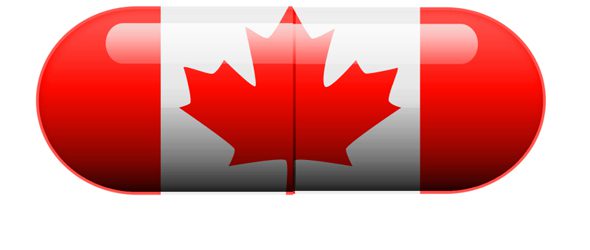prescription drugs
Pregnant women warned to avoid some pain-relief drugs
Should biosimilar drugs be artificially promoted in Canada?
Vague recall process poses potential harm
Trump loosening FDA regulations could hurt Canadians
Lack of safety standards for home cancer treatment puts patients at risk

Ten years ago, almost all chemotherapy drugs were delivered intravenously at a hospital. Today, many cancer treatments are taken orally by patients, in their homes. The trend means patients enjoy the comfort of being in their own homes and avoid parking and transportation costs. It is also much less costly for hospitals. But taking oral …
Is Canada paying too much for generic biological drugs?

In an earlier article, we discussed the importance of post-patent competition in generating social value from the pharmaceutical market. Generic competition gives people access to less expensive drugs and allows society to recapture value from patent holders. This topic is currently relevant because numerous major biopharmaceutical patents, including Remicade, Humira, and Lucentis, are set to …
Generic drugs: Canada needs more competition

Pharmaceutical innovations are the ultimate public good. They are ideas that make it possible for society to address otherwise unmet health care needs. As ideas, however, they are also hard to find and easy to copy. As such, fostering valued, pharmaceutical innovation is a policy paradox. In a truly “free market,” no firm would have …
Canadian provinces take first steps towards lower drug prices

Prescription drugs provide important benefits to patients, and are an essential component of the health care system. They also have significant costs: Canadians spent roughly $35 billion on drugs in 2013, or about 16% of total health care spending. Drug costs have put significant strain on provincial budgets. In response, most of Canada’s provinces and …
Canada’s prescription opioid crisis

There is a prescription opioid crisis in Canada. While these drugs are effective in treating acute pain, and pain near the end of life, the evidence to support long-term use in patients with chronic pain is weak, and for many people the harms exceed the benefits. Prescription opioids are also highly addictive and easily misused. …
Demystifying private drug plans

There are many pre-conceived notions about private drug coverage in Canada that are really myths. There are also significant differences between public and private drug plan coverage that result in different coverage decisions. It is important to understand these myths and differences to better understand the overall Canadian healthcare system. Myth #1 – Public and …
Vanessa’s Law a laudable first step towards improving patient safety

On December 6th, Health Canada announced the Protecting Canadians from Unsafe Drugs Act giving powers to the Minister of Health to force companies to recall or stop the sale of any therapeutic drug product or device marketed in Canada. The tabled legislation comes hot on the heels of an investigative report in the Toronto Star outlining Health Canada’s inability to unilaterally …
Weighing the evidence – should Ontario fund Avastin for brain cancer?

Like many Ontarians, I have been moved by the request of Kimm Fletcher to have the Ontario government pay for the drug Avastin to treat her recurrent brain cancer. Ms. Fletcher is 41 years old and the mother of two young children. It sounds like her brain cancer is growing aggressively despite the best treatments …
Who pays for “free” medication samples?

A student recently started one of my patients on the oral contraceptive pill YAZ. When I asked why that particular birth control pill was chosen instead of all the alternatives, I was shocked by the response: “We have samples.” The student was referring to the medication samples that are delivered to clinics by representatives of …
Financial aid for costly cancer drugs
Are concerns over conflict of interest stifling innovation?

“We made a practical and open work environment for engineers and shop workers, forcing the guys behind the drawing boards onto the shop floor to see how their ideas were being translated into actual parts and to make any necessary changes on the spot.” -from Skunk Works: A Personal Memoir of My Years of Lockheed …
Why Ontario should pioneer the expansion of prescription drug coverage

At a national health policy conference recently, Ontario’s Health Minister Deb Matthews made a few notable comments. Among them was a request that policy experts applaud government officials when they do the right thing. Too often, good healthcare policy gets blocked by a very vocal minority of stakeholders. Minister Matthews also said that expanding prescription …
It’s time to reconsider private drug plans for public employees

Most people are probably aware of Fair PharmaCare, British Columbia’s universal public plan that covers everyone for catastrophic drug costs (other provinces have similar programs, such as Trillium in Ontario). BC’s program pays for nearly a billion dollars of prescription drugs every year. Our provincial government also directly and indirectly pays for a lot of …
How much interaction should medical students have with industry?

A drug company sales representative stands in front of a class of University of Toronto medical students and delivers her well-rehearsed sales pitch about the benefits of her company’s birth control pill. Hold on: Isn’t this sort of interaction between the pharmaceutical industry and med students supposed to be forbidden because of concerns about conflicts …
It’s time for Canada to leverage “big data” for stronger drug safety

“In God we trust; all others [must] bring data.” – W. Edwards Deming Baycol, Vioxx. Avandia. These medications became household names not for their widespread prescription worth billions of dollars in sales, but for their well-publicized safety concerns that have touched the lives of millions of patients and their families. More than 80 new patented medications …




